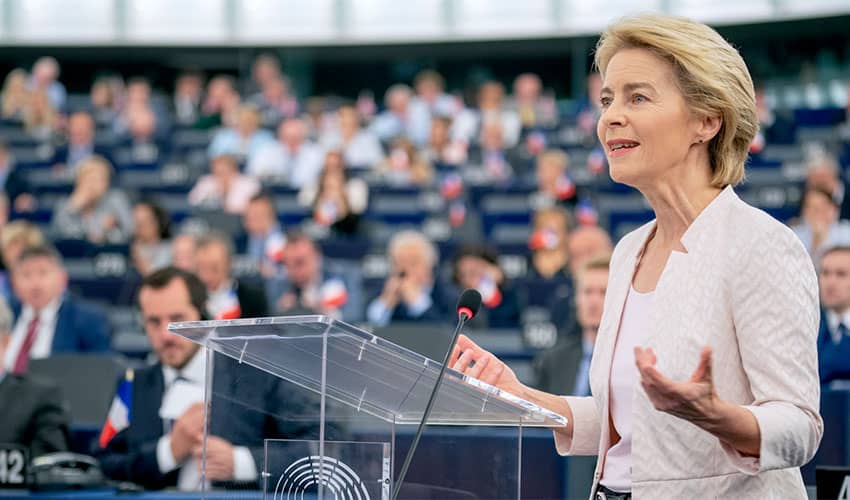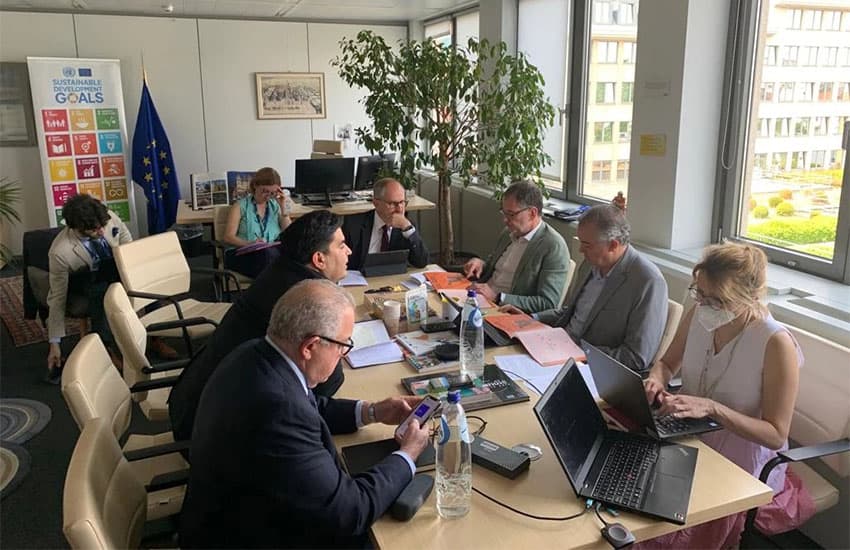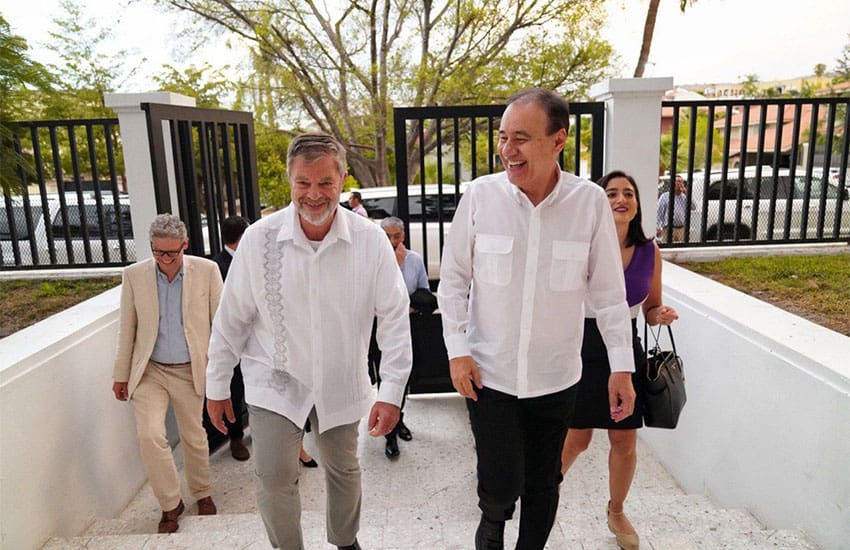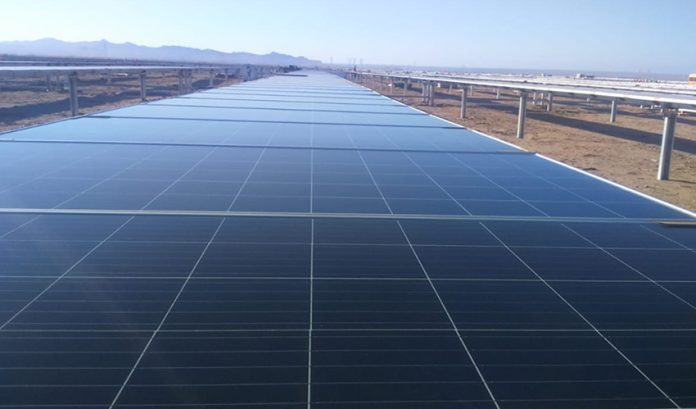The European Union will next week make a formal decision to invest in Mexico’s Plan Sonora renewable energy initiative, the EU’s ambassador to Mexico said Wednesday.
Gautier Mignot said that investment in the Plan Sonora project, which includes the development of a massive solar park in Puerto Peñasco, will be approved at the EU-CELAC summit to be held in Brussels, Belgium, next Monday and Tuesday.

CELAC is the Community of Latin American and Caribbean States, a regional bloc formed in 2011.
“A list of investment projects on which we will commit to work together will be approved at the summit. The investment agenda will include Plan Sonora,” Mignot said at a Foreign Affairs Ministry (SRE) event at which officials presented the renewable energy initiative to over 80 European companies.
The EU ambassador said that President López Obrador and Sonora Governor Alfonso Durazo presented the project to European Commission President Ursula von der Leyen during her visit to Mexico last month.
Von der Leyen “confirmed the interest of the EU to accompany Plan Sonora,” Mignot said.

He said that the initiative — another aspect of which is planned lithium extraction in Sonora — is congruent with the European priority to provide “support for sustainable development and the green transition” in Mexico.
Mignot didn’t say how much the European Union would invest in Plan Sonora or which European firms would participate but noted that EU and Mexican teams are in contact “to define concrete projects.”
Deputy Foreign Affairs Minister Carmen Moreno said that recently appointed Foreign Affairs Minister Alicia Bárcena intended to meet with European leaders in Brussels next week and that she was sure they would talk about Plan Sonora, among other projects.
She noted at the SRE’s Plan Sonora information session that the EU is Mexico’s third largest trade partner and that Mexico is the EU’s second largest trade partner in Latin America.
The renewable energy initiative is “designed to transform Sonora and Mexico into a prosperous and sustainable place as well as improve the conditions … so that more companies expand their operations and investments” here, Moreno said, acknowledging that some firms partially base investment decisions on the availability of renewable energy and the host country’s climate credentials.
Former foreign affairs minister Marcelo Ebrard announced late last year that Mexico would collaborate with the United States to double its capacity to produce renewable energy.

Governor Durazo met earlier this week with Germany’s Ambassador to Mexico Wolfgang Dold, who traveled to Sonora with business-sector representatives to learn more about Plan Sonora.
The business leaders represent more than 2,000 German companies that operate in Mexico, Durazo said, adding that the “objective” of their visit was to “get to know the potential” of Plan Sonora with a view to investing in the state.
Dold said that many German companies are looking to expand their operations in Mexico for a variety of reasons, including the country’s proximity to the United States and the availability of qualified labor.
He also said that the supply of reliable and renewable energy from the Puerto Peñasco solar park, the first section of which began operations earlier this year, was a draw for German companies. Germany has made significant efforts to generate more renewable energy; in the first half of 2023, 57.7% of the country’s electricity generation was renewable energy, a record, according to Germany’s Fraunhofer Institute for Solar Energy Systems.
With reports from EFE, El Universal, Milenio and El Imparcial
